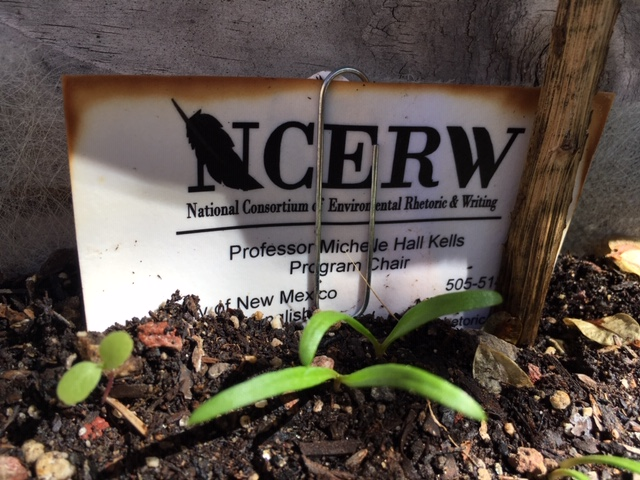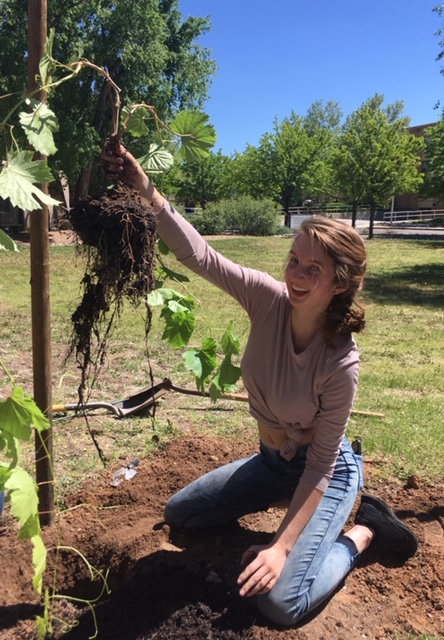Drink Good Wine with Interesting People in
Memorable Places.
ENGL 320 Spring 2019
Dr. Michelle Hall Kells
Writing
About Wine & Culture
“The effect
of Dionysis is now dear to me, as well as Aphrodite’s urgings and the Muses
inspiration—they all bring good cheer to all people.” Solon of Athens
Echoing the ancient
Athenian scholar Solon, a more modern
mantra reads: “Drink good wine with interesting people in memorable places.” Wine
as a cultural, social, and rhetorical trope speaks to us across communities,
place, and time. Good wine feeds the body and the soul. Wine is communion. It
seals romance and toasts good fortune. The story of wine stretches through
history for over some three thousand years. The purpose of this class is to
create a community of writers and to cultivate opportunities for considering our
roles as makers, consumers, artists, scholars (of place) through the study of
local and global wine cultures. The rich literary and rhetorical legacy of wine
culture and environmental discourses will be examined through diverse textual
artifacts (and genres) including the everyday rhetoric of wine lists and
labels, food pairing recipes, films, poetry, stories, essays, letters, creative
nonfiction, food reviews, field guides, user-manuals, and the multiple forms of
wine rhetoric in public and literary culture.
How we talk and write
(rhetorically construct) the story of wine maps who we are—our social positions
in relation to family, community, culture, class, gender, regional, and
national identity. Wine in all its varieties indexes far more than just “good taste.”
From the ancient Greeks of Plato, to the Romans of Cicero and extending to
colonial America and Constitutional-era of Thomas Jefferson wine tells a story
that extends across a constellation of disciplines (science, art, literature,
religion, culinary studies, business, agriculture, marketing, history, engineering,
and medicine) as well as a series of creative processes (like the art of
rhetoric), craft (techné), and aesthetics (embodied) dimensions of human
experience. The rich metaphors of wine spark our imagination, induce
consumption, and construct our experience of what the ancients once called the
“nectar of the gods.”
This course will also focus
on literary and rhetorical texts representing the ecologies of place (historical
and regional) that shape the composition of wine as an environmentally-specific
product. Wine is place (minerals, water, rain, soil, and vine). We will give special
emphasis to New Mexico and “New World” wine cultures as these evolved
throughout Southwest and Western United States during the colonial period. We
will also examine current environmental issues in relation to the terroir of vine cultivation (land and
water rights, labor, climate change impact on cultivation, microclimates,
biomes, and biodiversity depletion).
Participation in field exercises, guest lectures, and out-of-class
learning environments will be integral to this course. Our reading list will
include numerous genres and texts examining the story of wine through history
as well as across cultures and regions.
The study of the rhetoric of
wine calls attention to the means by which growers, consumers, poets, technical
writers, and marketing agents represent and advance the cultures, ceremonies,
and stories of wine as forms of ideological capital, economic currency, and
artistic production. These conceptual framing principles (as topoi) will inform
our analyses of place, agency (social power), and arguments about the multiple
uses of cultural/environmental resources—particularly the circulation of as
well as the cultivation and distribution of wine as a cultural (literary and
rhetorical) resource.
Our class will be
participating with UNM Lobo Gardens and conducting field days in the Lobo
Garden areas on campus for the second eight weeks of the semester. Capstone
Project will include the construction of student Writing About Wine &
Culture Blogs (using field research and qualitative research methods) toward
the production of an online portfolio of reflective writing, field reports,
film analyses, food reviews, interviews, and a multi-modal team presentation.
NOTE: There
is not an age requirement for enrolling in this class and studying the
language, rhetoric, and writing about wine; however, this class strictly
observes legal age requirements for imbibing in wine and other alcoholic
products.
[i] Qtd. Tim J. Young, Drinking Wine with Homer & the Earliest
Greeks (119).




Comments
Post a Comment